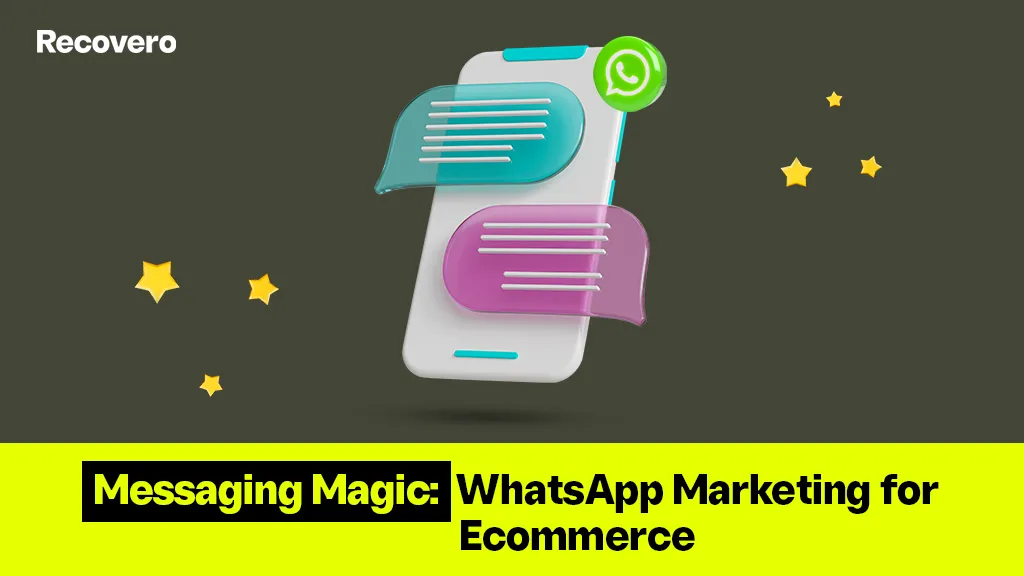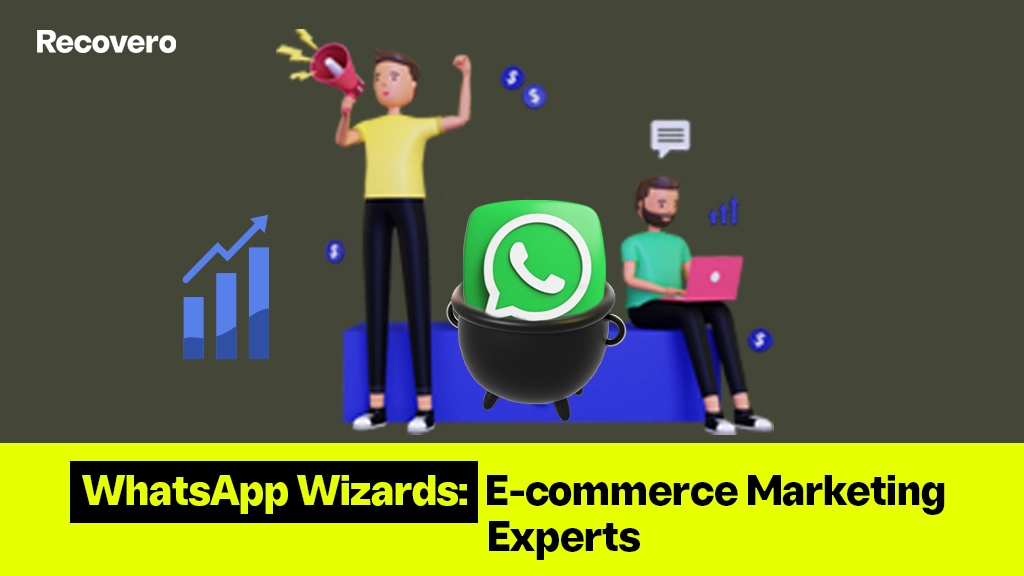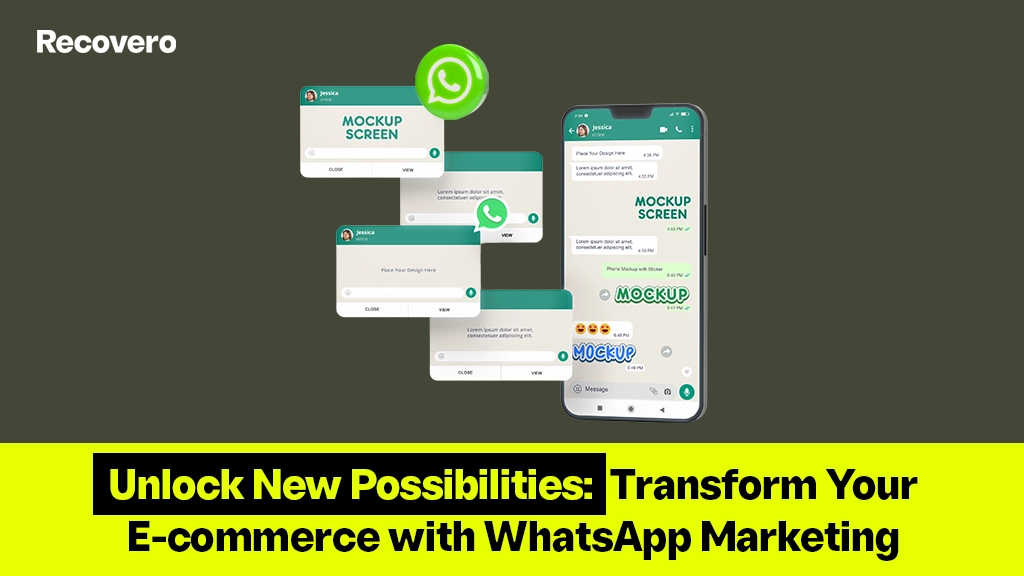In today’s digital landscape, WhatsApp has emerged as a powerful marketing channel. Allowing businesses to engage with their target audience in a personalized way. With its extensive user base features. WhatsApp offers many benefits for businesses looking to enhance their marketing efforts. In this article, we will explore a comprehensive 6-step playbook. To develop an effective WhatsApp marketing strategy. That can help businesses achieve their marketing objectives and drive business growth.
Understanding the Power of WhatsApp Marketing:-
A. The Rise of WhatsApp as a Marketing Channel:
- Explore the rapid growth and popularity of WhatsApp as a messaging platform worldwide.
- Highlight the significant user base and engagement statistics.
B. Benefits of WhatsApp Marketing for Businesses:
- Discuss the advantages of leveraging WhatsApp for marketing purposes.
- Highlight the direct and personalized communication opportunities it offers.
Defining Your Objectives and Target Audience:-
A. Identifying Your Marketing Goals:
- Encourage businesses to define their specific marketing objectives.
- Emphasize the importance of setting measurable and realistic goals.
B. Understanding Your Target Audience:
- Discuss the significance of audience research and segmentation.
- Provide tips on gathering insights about target customers. To inform the WhatsApp marketing strategy.
C. Tailoring Your WhatsApp Marketing Strategy to Your Objectives and Audience:
- Guide businesses on aligning their marketing goals and target audience with WhatsApp’s capabilities.
- Highlight the need for customization and personalization in messaging.
Building Your Subscriber List:-
A. Leveraging Existing Customer Base and Contacts:
- Tell businesses on utilizing their current customer database. As to build a WhatsApp subscriber list.
- Provide strategies for promoting opt-ins and encouraging existing customers to join.
B. Implementing Opt-In Strategies for New Subscribers:
- Explain the importance of obtaining explicit consent from new subscribers.
- Present creative opt-in methods, such as website opt-in forms or QR codes.
C. Ensuring Compliance with Privacy Regulations:
- Highlight the significance of privacy and data protection in WhatsApp marketing.
- Educate businesses on adhering to relevant privacy regulations, such as GDPR.
Crafting Compelling and Engaging Content:-
A. Understanding the Unique Characteristics of WhatsApp Content:
- Explain the nature of WhatsApp as a personal and intimate messaging platform.
- Emphasize the importance of tailoring content to resonate with WhatsApp users.
B. Utilizing Multimedia Content for the largest Impact:
- Encourage businesses to leverage visual and multimedia elements in their WhatsApp messages.
- Provide examples of engaging multimedia content, such as images, videos, or GIFs.
C. Implementing a Content Calendar and Messaging Cadence:
- Tell businesses on creating a content calendar to ensure regular and consistent messaging.
- Discuss the importance of maintaining an appropriate messaging frequency to avoid overwhelming subscribers.
Automating Your WhatsApp Campaigns:-
A. The Power of Automation in WhatsApp Marketing:
- Highlight the benefits of automating WhatsApp campaigns for efficiency and scalability.
- Introduce the concept of chatbots and their role in automating interactions.
B. Leveraging Chatbots for Seamless Interactions:
- Discuss the capabilities of chatbots in handling customer queries and providing instant responses.
- Explain how businesses can integrate chatbots into their WhatsApp marketing strategy.
C. Setting Up Automated Sequences and Triggers:
- Guide businesses on creating automated sequences based on user actions or predefined triggers.
- Provide examples of triggered messages, such as welcome messages or abandoned cart reminders.
Personalizing Your Communication:-
A. Using Customer Data for Personalization:
- Explain the value of utilizing customer data to deliver personalized messages.
- Discuss the types of data that can be used for personalization. Such as purchase history or preferences.
B. Implementing Dynamic Fields and Variables:
- Introduce the concept of dynamic fields to insert personalized information into messages.
- Provide examples of dynamic variables, such as customer names or order details.
C. Creating Personalized Offers and Recommendations:
- Highlight the impact of personalized offers and recommendations on customer engagement.
- Share strategies for tailoring offers based on customer preferences and behaviours.
Tracking and Analyzing Performance in WhatsApp Marketing Strategy:-
A. Defining Key Metrics and Performance Indicators:
- Introduce essential metrics to measure the success of WhatsApp marketing campaigns.
- Discuss metrics such as click-through rates, conversion rates, and customer engagement.
B. Utilizing Analytics Tools for Data Insights:
- Present analytics tools available for tracking WhatsApp marketing performance.
- Explain how businesses can use data insights to optimize their messaging and campaigns.
C. Iterating and Optimizing Your WhatsApp Marketing Strategy:
- Emphasize the importance of continuous improvement and experimentation.
- Encourage businesses to iterate their WhatsApp marketing strategy based on data-driven insights.
Best Practices for Effective WhatsApp Marketing:-
A. Ensuring Permission-Based Messaging in WhatsApp Marketing Strategy:
- Highlight the significance of obtaining explicit consent for messaging.
- Discuss the consequences of unsolicited or spammy messages.
B. Striking the Right Balance between Promotion and Value:
- Guide businesses on maintaining a balance between promotional messages and value to subscribers.
- Encourage businesses to offer valuable content or exclusive deals to maintain subscriber engagement.
C. Implementing Two-Way Communication and Customer Support:
- Explain the importance of fostering two-way communication on WhatsApp.
- Provide tips for offering prompt customer support through WhatsApp.
D. Testing and Experimenting with Different Approaches:
- Advocate for a culture of testing and experimentation in WhatsApp marketing.
- Encourage businesses to try different messaging styles, content formats, and call-to-actions.
Final Thoughts about WhatsApp Marketing Strategy:-
Developing a comprehensive WhatsApp marketing strategy can impact a business’s growth and success. By following this 6-step playbook, businesses can tap into the power of WhatsApp. As a marketing channel and leverage its unique features to:
- engage,
- personalize,
- and convert their target audience.
Implementing a strategic WhatsApp marketing approach. This year can open new avenues for businesses. As to connect with customers, drive sales, and achieve their marketing goals. It’s time to embrace the potential of WhatsApp marketing. And take your business to new heights.




